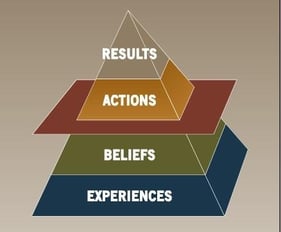 Several years ago, a CEO I worked with admitted he frequently failed to follow through on new initiatives he started.
Several years ago, a CEO I worked with admitted he frequently failed to follow through on new initiatives he started.
In the eyes of the people in his organization, assigned to implement a new initiative, there was little reason to put heart and soul into it because the company had jumped on new management bandwagons in the past, only to set it aside later for the Next Big Thing.
If you’ve attempted change in your organization without luck you’ve encountered what the authors of Propeller: Accelerating Change by Getting Accountability Right, call the Action Trap.
To change belief, you need to provide experiences that prove the value of the new initiative and leadership’s commitment to follow through.
Why are we doing this? What results will we enjoy if we implement it well? What will happen if we don’t?
Leaders can’t tell their people to change their beliefs and expect them to do it. Instead, leaders must create the experiences needed to shape the desired new beliefs.
In the case of my CEO, he needed to introduce a new narrative, a story compelling enough to make his team believe this time was different.
Leaders tend to get caught in an action trap. The action trap does little to help people achieve and sustain results over time.
The Results Pyramid: Experiences, Beliefs, Actions, Results.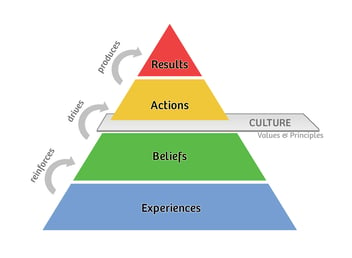
To understand this concept, review the graphic here of the Results Pyramid.
The model is deceptively profound. It suggests experiences form beliefs, beliefs drive actions, and actions produce results. Most leaders only work the top two layers (Actions and Results), ignoring the bottom two layers (Experiences and Beliefs). Leaders spend most of their time trying to deliver better results by focusing on the way people are acting. They create new action plans, hang new checklists, rewrite the standard operating procedures, etc., all the while ignoring the beliefs people hold will ultimately dictate how they behave over the long term.
This video gives a good example of the meaning of the Results Pyramid: Managers manage actions, Leaders inspire beliefs:
Culture Defined
A lot of leaders toss around the words culture and accountability without paying attention to their true meanings. Propeller’s authors define accountability as a powerful, positive force that propels people toward whatever results they seek.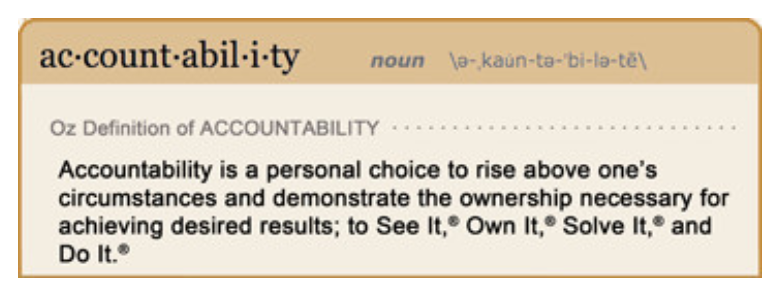
The Propeller authors define culture as the sum total of the experiences, beliefs, and actions that enable an organization to achieve its Key Results.
A company’s culture is the sum of the experiences, beliefs, and actions that enable it to achieve its Key Results or impede it from doing so.
The right culture practically guarantees success; the wrong culture will almost always lead to failure.
Either you will manage your culture, or it will manage you.
Culture Change Principles
Every organization has its narratives, stories explaining “the way we do things around here.” Leaders need to discover and understand those narratives before they attempt to make any meaningful, lasting changes in their organizational culture.
When you need to change your people’s beliefs to achieve a Key Result, you will find these three principles quite helpful:
- Experiences Change Beliefs.
- Belief Bias, as well as the Organizational Narrative, Need to Be Known and Managed.
- Leaders Must Weave Accountability into the Culture
Here’s a shortened example for the book:
 An Emergency Department administrator wanted to achieve one major Key Result: Improve collection of emergency contact information from 42 percent to closer to 100%.
An Emergency Department administrator wanted to achieve one major Key Result: Improve collection of emergency contact information from 42 percent to closer to 100%.
The administrator tracked the next of kin information and discovered the admitting forms were complicated and too confusing for busy staff to complete.
Solution: design a much simpler, easy-to-use form? Right?
After training sessions on the new forms, four months later next of kin info had only increased from 42% to just 47%
Devastated by this lack of impact, she researched to discover, her team believed, “collecting all this information doesn’t help us do better work.”
To change a negative belief blocking your path to Key Results, strike at the cause of that belief. Replace experiences that shaped those beliefs with ones that will inspire people to take action to get the result.
Experiences are created in three ways within an organization: firsthand or face-to-face, from the stories we tell or hear, and from day-to-day practices, policies, and procedures.
The ED administrator decided to tell two meaningful stories to help people begin to believe they really did need to collect the expected admissions information. Two memorable events in the emergency department stood out in the past couple of years. (See the stories displayed here on how collecting next-of-kin information can make a lifesaving difference.)
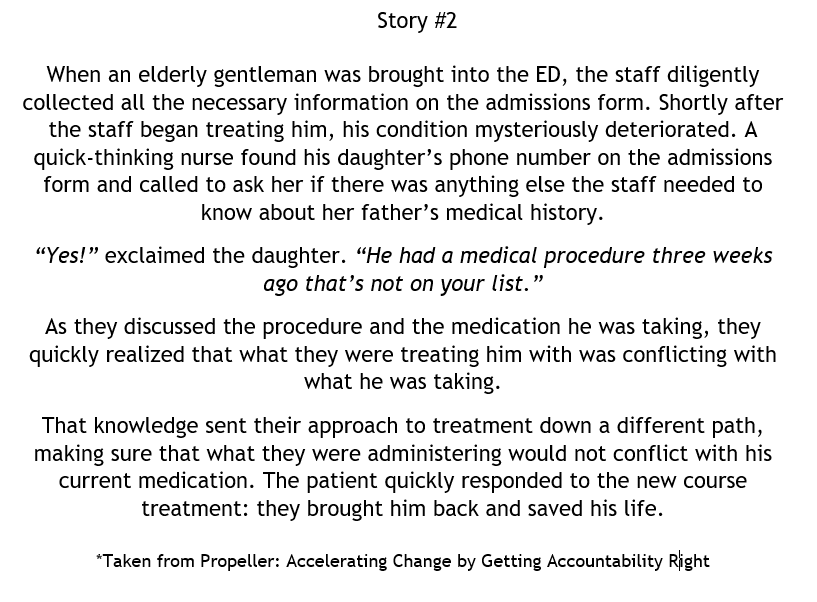 For the next three weeks, the ED administrator repeated these stories to her people.
For the next three weeks, the ED administrator repeated these stories to her people.
She rechecked the numbers to see if the stories worked: a whopping increase from 47 percent to 92 percent.
She had escaped the action trap.
The experiences she shared accomplished what the training failed to do.
When you create the right experiences, those experiences shape the right beliefs, and people take the right actions to get the results they need. When you work with the entire Results Pyramid, give proper attention to the bottom two layers, Beliefs and Experiences, you create an environment where people exhibit the desired behaviors.
To create an environment where everyone is inspired to give their best, contact us today to schedule a free exploratory meeting.
Growth demands Strategic Discipline.
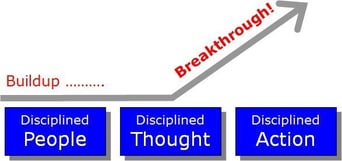 Building an enduring great organization requires disciplined people, disciplined thought, disciplined action, superior results, producing a distinctive impact in the world.
Building an enduring great organization requires disciplined people, disciplined thought, disciplined action, superior results, producing a distinctive impact in the world.
Discipline sustains momentum, over a long period of time, laying the foundations for lasting endurance.
-2.jpg?width=268&name=3%20Disciplines%20of%20Execution%20(Strategic%20Discipline)-2.jpg) A winning habit starts with 3 Strategic Disciplines: Priority, Metrics, and Meeting Rhythms. Forecasting, accountability, individual, and team performance improve dramatically.
A winning habit starts with 3 Strategic Disciplines: Priority, Metrics, and Meeting Rhythms. Forecasting, accountability, individual, and team performance improve dramatically.
Meeting Rhythms achieve a disciplined focus on performance metrics to drive growth.
Let Positioning Systems help your business achieve these outcomes on the Four most Important Decisions your business faces:
|
DECISION |
RESULT/OUTCOME |
|
PEOPLE |
|
|
STRATEGY |
|
|
EXECUTION |
|
|
CASH |
|
Positioning Systems helps mid-sized ($5M - $250M) business Scale-UP. We align your business to focus on Your One Thing! Contact dwick@positioningsystems.com to Scale Up your business! Take our Four Decisions Needs Assessment to discover how your business measures against other Scaled Up companies. We’ll contact you.
 NEXT BLOG – The Importance of Learning Hard & Soft Skills
NEXT BLOG – The Importance of Learning Hard & Soft Skills
What are hard skills and soft skills? Why is it important you learn both? Guest blog writer Frank Hamilton will share insights on these in our next blog






.jpeg?width=150&height=135&name=Hand%20with%20marker%20writing%20the%20question%20Whats%20Next_%20(1).jpeg)

